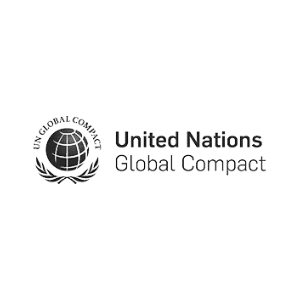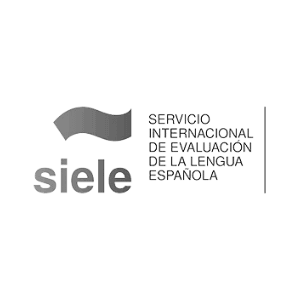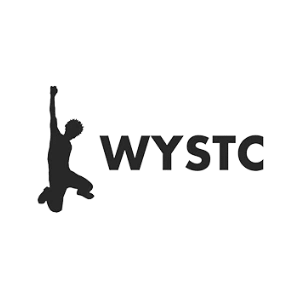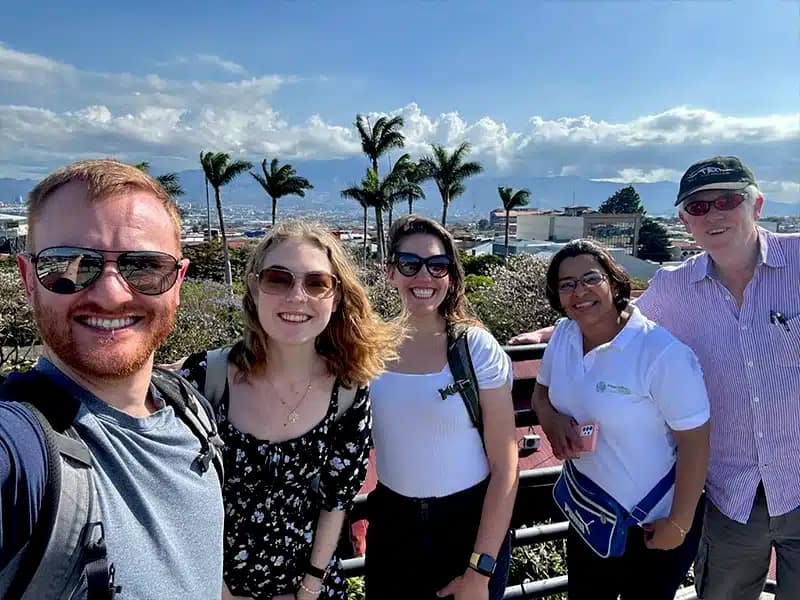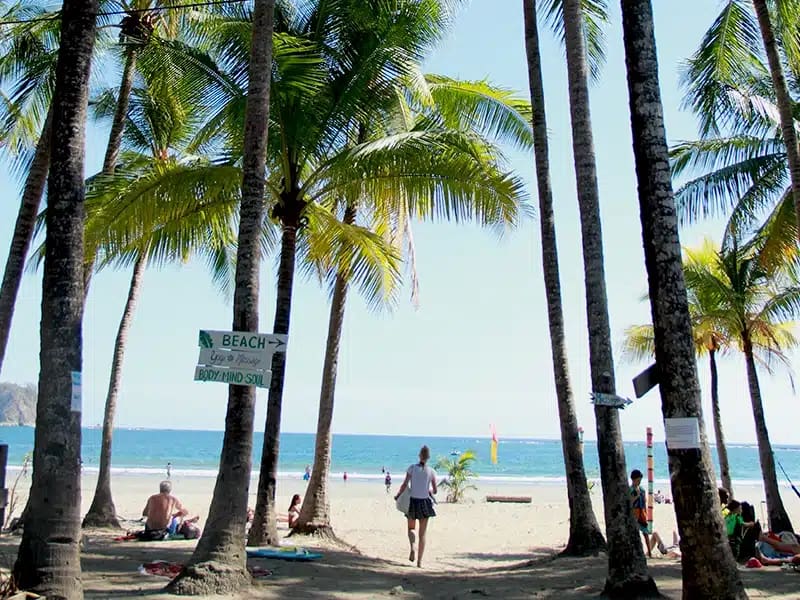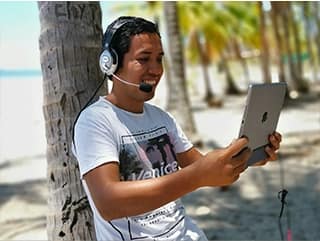-
Your Spanish Immersion School in Costa Rica
For all ages and Spanish levels
City & Beachfront Campuses
LEARN SPANISH IN COSTA RICA
at our Sámara Beach or Heredia City school location
LEARN SPANISH IN COSTA RICA
at our Sámara Beach or Heredia City school location
Learning Spanish has never been more fun, multifaceted, and enriching than with Intercultura Costa Rica's year-round Spanish immersion programs. Our classes are dynamic and challenging, with a focus on conversation, culture and community connection. Combine both school locations for a contrasting Spanish and cultural immersion experience…find out more about each location below:
Spanish Immersion in Heredia City
Learn Spanish in a mountain city
Spanish Immersion in Sámara Beach
Study Spanish right on the beach
Online Spanish Classes from Home
With our fun, native Spanish teachers
WHY STUDY SPANISH WITH INTERCULTURA COSTA RICA?
Internationally recognized
Our primary goal is to teach you the Spanish language in a warm yet intellectually challenging environment. Classes at both of our campuses – Heredia city and Playa Samara – are conducted entirely in Spanish, providing students from all over the world with a complete and intensive learning experience.
Intercultura’s professors have advanced university degrees and teaching certification, and we are accredited through the US university system, offering undergraduate academic credit to those interested.
The communicative approach in a total immersion context is the most effective method for learning Spanish quickly. Classes are dynamic, interactive, and structured to maximize the language acquisition process in our immersion programs with small classes and 18 different levels.
You’ll get to know Costa Rica, its traditions and its rich cultural heritage by participating in our daily cultural activities and events. On a larger scale, we hope to promote global awareness and tolerance through this sharing of cultures. We believe that participation in programs such as this one teach not only a new language, but also effective tools for communication and understanding in the constantly evolving world culture in which we live.
We believe that there is more to a school than teaching and learning a language. At Intercultura Costa Rica Spanish Schools, we are committed to giving back to the communities that host us through our contributions to, and participation in, a variety of local social development and non-profit initiatives. In addition, our organizational structure aims to provide employment and growth opportunities for local community members and businesses via the implementation of a decentralized and socially-conscious business model. Intercultura is the only Spanish School in Costa Rica awarded membership in the United Nations Global Compact, a network of organizations recognized for their Coporate Social Responsibility programs and their creation of Human Rights, Environmental Protection, Labour and Anti-Corruption initiatives.
We provide accredited programs in collaboration with various universities in the United States. These programs are designed to provide students with a comprehensive and enriching educational experience while also immersing them in the local Costa Rican culture. By partnering with American universities, Intercultura Costa Rica ensures that their programs meet the highest standards of academic excellence and that students can transfer credits to their home institution upon completion. Read more about our customized Spanish immersion program for groups.
As a recognized institution by the German Government Bildungsurlaub program, students from Germany can apply at Intercultura Costa Rica for Bildungsurlaub, a program that allows employees to take educational leave from work to participate in a language or cultural immersion program. Read more about Bildungsurlaub here.
WHY STUDY SPANISH WITH US?
Internationally recognized
Our primary goal is to teach you the Spanish language in a warm yet intellectually challenging environment. Classes at both of our campuses – Heredia city and Playa Samara – are conducted entirely in Spanish, providing students from all over the world with a complete and intensive learning experience.
Intercultura’s professors have advanced university degrees and teaching certification, and we are accredited through the US university system, offering undergraduate academic credit to those interested.
The communicative approach in a total immersion context is the most effective method for learning Spanish quickly. Classes are dynamic, interactive, and structured to maximize the language acquisition process in our immersion programs with small classes and 18 different levels.
You’ll get to know Costa Rica, its traditions and its rich cultural heritage by participating in our daily cultural activities and events. On a larger scale, we hope to promote global awareness and tolerance through this sharing of cultures. We believe that participation in programs such as this one teach not only a new language, but also effective tools for communication and understanding in the constantly evolving world culture in which we live.
We believe that there is more to a school than teaching and learning a language. At Intercultura Costa Rica Spanish Schools, we are committed to giving back to the communities that host us through our contributions to, and participation in, a variety of local social development and non-profit initiatives. In addition, our organizational structure aims to provide employment and growth opportunities for local community members and businesses via the implementation of a decentralized and socially-conscious business model. Intercultura is the only Spanish School in Costa Rica awarded membership in the United Nations Global Compact, a network of organizations recognized for their Coporate Social Responsibility programs and their creation of Human Rights, Environmental Protection, Labour and Anti-Corruption initiatives.
We provide accredited programs in collaboration with various universities in the United States. These programs are designed to provide students with a comprehensive and enriching educational experience while also immersing them in the local Costa Rican culture. By partnering with American universities, Intercultura Costa Rica ensures that their programs meet the highest standards of academic excellence and that students can transfer credits to their home institution upon completion. Read more about our customized Spanish immersion program for groups.
As a recognized institution by the German Government Bildungsurlaub program, students from Germany can apply at Intercultura Costa Rica for Bildungsurlaub, a program that allows employees to take educational leave from work to participate in a language or cultural immersion program. Read more about Bildungsurlaub here.
FUN & EFFECTIVE SPANISH COURSES
A UNIQUE LANGUAGE LEARNING APPROACH
DYNAMIC, LICENSED & ACCREDITED SPANISH PROFESSORS
EXCITING CULTURAL ACTIVITIES PROGRAM
CERTIFIED BY THE UN GLOBAL COMPACT
ACCREDITED PROGRAMS WITH US UNIVERSITIES
RECOGNIZED BY THE GERMAN BILDUNGSURLAUB PROGRAM
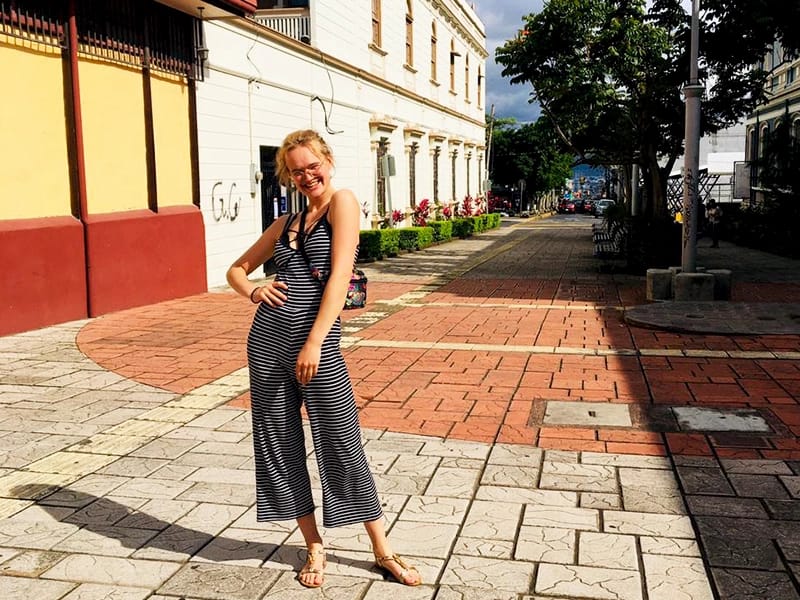
Combine both school locations and get the most out of your Spanish and cultural learning experience in Costa Rica.
First, go learn Spanish in Heredia, where you'll be surrounded by local Spanish speakers, and close to mountains, volcanoes, and waterfalls. Plus, you get to take advantage of an exclusive promotion that only applies when starting your Spanish program in Heredia! Then, move to the Spanish school in Playa Sámara, enjoy the beachfront school's top notch location next to the ocean, and the slow paced lifestyle of this fun, multicultural beach town.
STUDENT REVIEW
Esie Jordan, UK, 2022, student at both school locations
"Staying in Heredia was so much fun. The salsa classes at school, the food and the city energy was amazing. It felt like a calm, more intimate, sunnier town in London. I felt right at home. I visited the Samara campus too. It's chilled and utterly scenic, right on the beach. Spending time in both places is great, I was able to practice the Spanish I learnt in such different environments. I'm so glad I experienced both campuses!"
"Staying in Heredia was so much fun. The salsa classes at school, the food and the city energy was amazing. It felt like a calm, more intimate, sunnier town in London. I felt right at home. I visited the Samara campus too. It's chilled and utterly scenic, right on the beach. Spending time in both places is great, I was able to practice the Spanish I learnt in such different environments. I'm so glad I experienced both campuses!"
PRESS, CONFERENCES & AFFILIATIONS
We have received students from, attended conferences at, and/or worked with the following entities:






